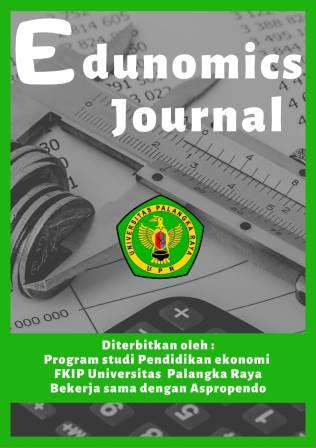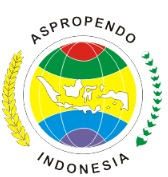Peningkatan Kinerja UMKM Saat Pandemi Covid-19 Melalui Kesiapan dan Inovasi Digital Improving SMEs Performance During Covid-19 Pandemic Through Digital Readiness and Innovation
Keywords:
kesiapan teknologi, inovasi digita, kinerja Usaha Mikro, KeciL dan Menengah (UMKM)Abstract
Penelitian ini bertujuan untuk mengujin hubungan antara kesiapan teknologi dan inovasi digital dalam mempengaruhi kinerja Usaha Mikro, Kecil, dan Menengah (UMKM) di Kalimantan Tengah. Penelitian in merupakan jenis penelitian kuantitatif dengan menggunakan metode survey. Jumlah sampel yang diperoleh sebesar 81 responden. Hasil penelitian ini menunjukkan bahwa kesiapan teknologi dan inovasi digital berpengaruh positif terhadap peningkatan kinerja UMKM saat pandemic bahkan sangat dibutuhkan. Teknologi yang digunakan mencakup seluruh penggunaan teknologi dari saat perencanaan hingga pembukuan. Hasil penelitian ini memiliki indikasi bahwa pemilik UMKM di Kalimanta Tengah ketika masa pandemic memiliki kemauan dan kemampuan untuk melakukan inovasi mengena digitalisasi agar mampu bertahan ketika masa pandemic. Inovasi digital ini mencakup dalam banyak hal dari inovasi digitalisasi dalam bentuk produk, pemasaran, pembukuan maupun mengenai perencanan yang harus dimulai dengan menggunakan digitalisasi. Penelitian ini memiliki implikasi bahwa teknologi merupakan hal yang substansi dalam UMKM. Pemikiran awal atau konvensional harus bergeser pada literasi digital. Pemahaman mengenai literasi digital di UKM yang rendah dapat mengakibatkan kesulitan dalam beradaptasi pada masa pandemik saat ini
Downloads
References
Acharya, V., & Xu, Z. (2017). Financial dependence and innovation: The case of public versus private firms. Journal of Financial Economics, 124(2), 223–243. https://doi.org/10.1016/j.jfineco.2016.02.010
Adomako, S., Danso, A., & Ofori Damoah, J. (2016). The moderating influence of financial literacy on the relationship between access to finance and firm growth in Ghana. Venture Capital, 18(1), 43–61. https://doi.org/10.1080/13691066.2015.1079952
Agyei, Samuel K., Adam, A. M., & Agyemang, O. S. (2019). Financial Literacy, Cultural Dominance, and Financial Well-Being of SME Owners in Ghana. Poverty and Public Policy, 11(3), 222–237. https://doi.org/10.1002/pop4.254
Agyei, Samuel Kwaku. (2018). Culture, financial literacy, and SME performance in Ghana. Cogent Economics and Finance, 6(1). https://doi.org/10.1080/23322039.2018.1463813
Ainna Amalia FN, & Lilis Rahmawati. (2019). Pendampingan Manajemen Keuangan Melalui Program Literasi Keuangan Kepada Komunitas Usaha Mikro Kecil dan Menengah (UMKM) yang Terjerat Rentenir di Kabupaten Nganjuk. Engagement : Jurnal Pengabdian Kepada Masyarakat, 3(1), 113–126. https://doi.org/10.29062/engagement.v3i1.55
Alnassar, W. I., & Al-Shakrchy, E. (2020). Financial education, political instability and firm performance: Evidence from Malaysian SMEs. International Journal of Innovation, Creativity and Change, 10(11), 625–639.
Anggraeni, B. D. (2016). Pengaruh Tingkat Literasi Keuangan Pemilik Usaha Terhadap Pengeloaan Keuangan. Studi Kasus : Umkm Depok. Jurnal Vokasi Indonesia, 4(1). https://doi.org/10.7454/jvi.v4i1.50
Citradika, D. P., Atahau, A. D. R., & Satrio, D. (2019). The use of non-cash transactions among Batik SMES: An empirical review from Indonesia. International Journal of Business and Society, 20(1), 397–416.
Dewi, F., & Mahendrawathi, E. R. (2019). Business process maturity level of MSMEs in East Java, Indonesia. Procedia Computer Science, 161, 1098–1105. https://doi.org/10.1016/j.procs.2019.11.221
Djuwita, D., & Yusuf, A. A. (2018). Tingkat Literasi Keuangan Syariah Di Kalangan UMKM Dan Dampaknya Terhadap Perkembangan Usaha. Al-Amwal : Jurnal Ekonomi Dan Perbankan Syari’ah, 10(1), 105. https://doi.org/10.24235/amwal.v10i1.2837
Fong, J. H. (2020). Taking control: Active investment choice in Singapore’s national defined contribution scheme. Journal of the Economics of Ageing, 17(January), 100249. https://doi.org/10.1016/j.jeoa.2020.100249
Garren, M., Lewis, F., Sanchez, L., Spina, D., & Brett, A. (2021). How performance standards could support innovation and technology-compatible fisheries management frameworks in the U.S. Marine Policy, 131(June), 104631. https://doi.org/10.1016/j.marpol.2021.104631
Gunawan, H., Sinaga, B. L., & Sigit Purnomo, W. P. (2019). Assessment of the readiness of micro, small and medium enterprises in using E-money using the unified theory of acceptance and use of technology (UTAUT) method. Procedia Computer Science, 161, 316–323. https://doi.org/10.1016/j.procs.2019.11.129
Handayani, S. F., & Mahendrawathi, E. R. (2019). Antecedent and business process management non-technical capabilities in social media implementation for micro, small and medium enterprises: A conceptual model. Procedia Computer Science, 161, 1114–1121. https://doi.org/10.1016/j.procs.2019.11.223
Herawati, N. T., Candiasa, I. M., Yadnyana, I. K., & Suharsono, N. (2020). The influence of gender and financial literacy on accounting implementation in small and micro business (SMES). International Journal of Innovation, Creativity and Change, 12(4), 36–50.
Hussain, J., Salia, S., & Karim, A. (2018). Is knowledge that powerful? Financial literacy and access to finance: An analysis of enterprises in the UK. Journal of Small Business and Enterprise Development, 25(6), 985–1003. https://doi.org/10.1108/JSBED-01-2018-0021
Imarhiagbe, B. O., Saridakis, G., & Mohammed, A. M. (2017). Do bank credit rejection and financial education affect financial self-confidence? International Journal of Entrepreneurial Behaviour and Research, 23(6), 1033–1051. https://doi.org/10.1108/IJEBR-05-2016-0168
Jiang, Q., & McCabe, S. (2021). Information technology and destination performance: Examining the role of dynamic capabilities. Annals of Tourism Research, 91, 103292. https://doi.org/10.1016/j.annals.2021.103292
Kadoya, Y., & Rahim Khan, M. S. (2020). Financial literacy in Japan: New evidence using financial knowledge, behavior, and attitude. Sustainability (Switzerland), 12(9). https://doi.org/10.3390/su12093683
Kadoya, Y., Rahim Khan, M. S., & Yamane, T. (2020). Government’s stimulus program to boost consumer spending: A case of discount shopping coupon scheme in Japan. Sustainability (Switzerland), 12(9). https://doi.org/10.3390/su12093906
Ma’ruf, A. (2019). The improvement strategies for Sharia financial literacy on creative economy. International Journal of Scientific and Technology Research, 8(11), 249–253.
Mabula, J. B., & Ping, H. D. (2018). Use of technology and SME managers’ financial literacy in developing economies. ACM International Conference Proceeding Series, 9(6), 145–152. https://doi.org/10.1145/3241748.3241765
Ngek, N. B. (2016). Performance implications of financial capital availability on the financial literacy - Performance nexus in South Africa. Investment Management and Financial Innovations, 13(2), 354–362. https://doi.org/10.21511/imfi.13(2-2).2016.10
Nohong, M., Ali, M., Sohilauw, M., Sobarsyah, M., & Munir, A. (2019). Financial literacy and competitive advantage: SME strategy in reducing business risk. Espacios, 40(32).
Novi Yushita Amanita. (2017). Pentingnya Literasi Keuangan Bagi Pengelolaan Keuangan Pribadi. Jurnal Nominal, VI, 15.
Okello Candiya Bongomin, G., Mpeera Ntayi, J., Munene, J. C., & Akol Malinga, C. (2017). The relationship between access to finance and growth of SMEs in developing economies: Financial literacy as a moderator. Review of International Business and Strategy, 27(4), 520–538. https://doi.org/10.1108/RIBS-04-2017-0037
Owusu, J., Ismail, M. Bin, Osman, M. H. B. M., & Kuan, G. (2019). Financial literacy as a moderator linking financial resource availability and SME growth in Ghana. Investment Management and Financial Innovations, 16(1), 154–166. https://doi.org/10.21511/imfi.16(1).2019.12
Panos, G. A., & Wilson, J. O. S. (2020). Financial literacy and responsible finance in the FinTech era: capabilities and challenges. European Journal of Finance, 26(4–5), 297–301. https://doi.org/10.1080/1351847X.2020.1717569
Setiawati, R., Nidar, S. R., Anwar, M., & Masyita, D. (2018). Islamic Financial Literacy : Construct. Academy of Strategic Management Journal, 17(4), 1–12.
Siekańska, M., Bondár, R. Z., di Fronso, S., Blecharz, J., & Bertollo, M. (2021). Integrating technology in psychological skills training for performance optimization in elite athletes: A systematic review. Psychology of Sport and Exercise, 57(June). https://doi.org/10.1016/j.psychsport.2021.102008
Singh, M., Rathi, R., & Garza-Reyes, J. A. (2021). Analysis and prioritization of Lean Six Sigma enablers with environmental facets using best worst method: A case of Indian MSMEs. Journal of Cleaner Production, 279, 123592. https://doi.org/10.1016/j.jclepro.2020.123592
Sugiarti, E. N., Diana, N., & Mawardi, M. C. (2019). Peran Fintech Dalam Meningkatkan Literasi Keuangan Pada Usaha Mikro Kecil Menengah Di Malang. E-Jra, 8(4), 90–104.
Tuffour, J. K., Amoako, A. A., & Amartey, E. O. (2020). Assessing the Effect of Financial Literacy Among Managers on the Performance of Small-Scale Enterprises. Global Business Review. https://doi.org/10.1177/0972150919899753
Vera, I. J. M. de. (2012). An Assessment of Micro, Small and Medium Enterprises that Underwent UP ISSI’s Integrated Plant Surveys for the Periode 2006 to 2011. Procedia Economics and Finance, 4(Icsmed), 350–364. https://doi.org/10.1016/s2212-5671(12)00349-8
Ye, J., & Kulathunga, K. M. M. C. B. (2019). How does financial literacy promote sustainability in SMEs? A developing country perspective. Sustainability (Switzerland), 11(10), 1–21. https://doi.org/10.3390/su11102990
Ying, Q., Hassan, H., & Ahmad, H. (2019). The role of a manager’s intangible capabilities in resource acquisition and sustainable competitive performance. Sustainability (Switzerland), 11(2). https://doi.org/10.3390/su11020527









